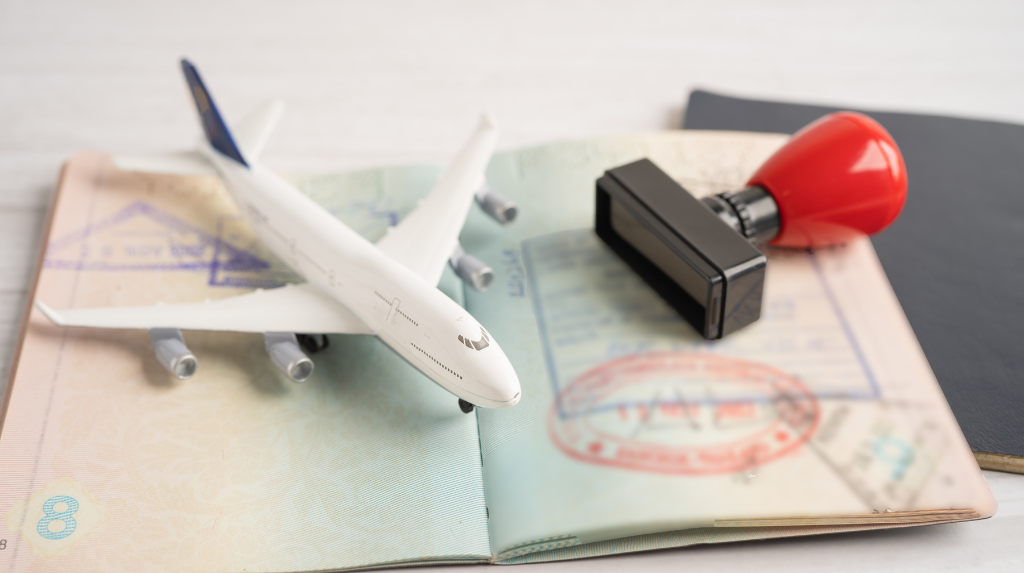Obtaining a US visa is a significant step towards realizing your dreams of traveling, studying, or working in the United States. However, sometimes the visa application process may not go as planned, and your visa could be refused. Facing a US visa refusal can be disheartening and confusing, but it’s essential to remember that all hope is not lost. In this article, we will explore the common reasons for visa refusals and the steps you can take if your US visa application is denied.
Understanding Visa Refusals
Common Reasons for Visa Refusals
US visa applications may be denied for various reasons, including:
- Incomplete Documentation: One of the most common reasons for visa refusal is the submission of incomplete or inaccurate documentation. Consular officers need accurate information to assess an applicant’s eligibility properly.
- Ineligibility: Applicants who do not meet the specific visa requirements may face a refusal. This could be due to insufficient funds, lack of ties to their home country, or past immigration violations.
- Criminal Record: Individuals with certain criminal convictions may be ineligible for a US visa. The severity and type of crime play a crucial role in determining visa eligibility.
The Role of Consular Officers
Consular officers are tasked with evaluating visa applications and determining an applicant’s eligibility. They consider various factors, including the applicant’s ties to their home country, financial stability, and the purpose of their US visit.
What to Do After a Visa Refusal
- Review the Rejection Letter: Upon visa refusal, the consular officer will provide a written explanation for the denial. Carefully review the letter to understand the specific reasons for refusal.
- Assess Your Eligibility: After reviewing the rejection letter, assess your eligibility based on the stated reasons for refusal. If the reasons are valid, consider other visa options or address the issues accordingly.
- Consult with an Immigration Attorney: Seek advice from an experienced immigration attorney who can guide you through the process and suggest the best course of action based on your individual circumstances.
Reapplying for a US Visa
- Gather Additional Documentation: To improve your chances of visa approval, gather additional supporting documentation that clarifies your intentions and strengthens your ties to your home country.
- Clarify Your Intentions: Be clear and concise in explaining the purpose of your US visit. Demonstrating genuine intentions and a well-defined itinerary can make a positive impact on your application.
- Address Previous Concerns: If the visa refusal was due to specific concerns raised by the consular officer, address those concerns directly in your new application.
Seeking Administrative Review
Motion to Reconsider
If you believe there was a misunderstanding or oversight in your initial application, you may file a Motion to Reconsider with the consular office.
Motion to Reopen
If you have new, relevant information that was not available during your previous application, you can file a Motion to Reopen.
Applying for a Waiver
Eligibility for a Waiver
In certain cases, individuals ineligible for a US visa may apply for a waiver. This typically applies to those with criminal records or previous immigration violations.
Demonstrating Extreme Hardship
To qualify for a waiver, you must demonstrate that your US visa denial would cause extreme hardship to you or your qualifying relative.
Appealing the Decision
File a Notice of Appeal
If your visa is refused, you have the option to appeal the decision. The appeal process involves submitting a Notice of Appeal to the appropriate authority.
Build a Strong Appeal Case
Your appeal should focus on addressing the reasons for refusal and providing additional evidence to support your eligibility for the visa.
Seeking Congressional Assistance
Contacting your Representative
You may seek assistance from your congressional representative or senator to inquire about your case and request support.
Explaining Your Case
When contacting your representative, clearly explain the circumstances of your visa refusal and why you believe your application should be reconsidered.
Facing a US visa refusal can be challenging, but it is essential not to lose hope. By understanding the reasons for refusal and taking the appropriate steps, you can increase your chances of a successful visa application. Remember to be thorough with your documentation, honest in your intentions, and seek professional guidance when needed.
Frequently Asked Questions (FAQs)
Can I reapply immediately after a visa refusal?
It is best to wait for some time before reapplying. Use this time to address the reasons for refusal and gather additional supporting documents.
Is a waiver guaranteed to be approved?
No, the waiver approval is not guaranteed. You must meet specific criteria and demonstrate extreme hardship to be considered.
How long does the appeal process take?
The appeal process duration varies, but it can take several months to a year or more for a decision to be reached.
Will contacting my congressional representative guarantee visa approval?
No, contacting your representative does not guarantee approval, but it may help bring attention to your case.
Can I apply for a different type of visa after refusal?
Yes, if you are eligible for another type of visa, you can apply for that visa instead.
Do you need support with your US visa application?
Contact our team of skilled immigration lawyers to discuss your visa and immigration needs.
Call us on +234 812 5505 986 or WhatsApp us at +234 818 1547 085 for immediate assistance with your situation. We are available to assist you in person, over the phone, or online.





